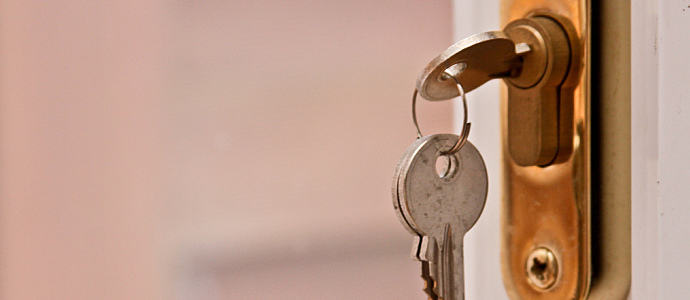Government-Backed Loans: What Buyers and Sellers Need to Know About FHA, VA, or RD Financing
When dealing with a government-backed buyer (FHA, VA, and RD), both the buyer and seller should be aware that the house will need to meet minimum inspection requirements set by the government. We examine common roadblocks on the way to the closing table.
The Grand Rapids realty market is on fire. There are a ton of young buyers in this market — we’ve even claimed a spot in the top 10 cities for millennial home buyers. With this title, we run into a lot of Grand Rapids buyers with government-backed financing.
So first of all, why are so many buyers going with government-backed loans? Going FHA (Federal Housing Administration), VA (Veterans Affairs), or RD (Rural Development) is a very attractive financing method for several reasons.
- You can get into a home with minimal to no down payment (3.5% down for FHA, and 0% down for VA and RD), which is one of the largest hurdles a home buyer needs to jump.
- FHA-backed loans’ debt-to-income ratio is much more lenient than that of conventional financing.
- For many buyers in this timeframe (six years after the recession), FHA might be the only option, as conventional lenders won’t lend to buyers who’ve had a foreclosure or bankruptcy in the recent past. So for a large portion of active buyers in this great market, government-backed loans are the only choice for financing.
Well, this is great, right? More people can afford to buy, which makes the market so much better, but like everything in life, there are some drawbacks to be aware of. There are several stipulations that can hold up a seemingly slam-dunk transaction and, in some cases, make a deal fall through. For this reason, today we’ll touch on the requirements of government-backed loans. This will give buyers an idea of what red flags to look for when choosing a home to write on, and sellers a good idea of what hoops your home will need to jump through in order to close with this specialized financing.
For Buyers
So you got a pre-approval for a home loan by going FHA, VA, or RD. That’s great! But buyer beware: With some homes, this approval is less than ideal, and in a multiple-offer situation, your pre-approval might cause the seller to go with a conventional offer, even if your offer price is slightly higher. This is because with a government-backed loan comes a laundry list of requirements the house must meet in order for the government to feel comfortable lending the money. When it comes time for the appraisal, an FHA-licensed appraiser will come out to the house and note any safety, structural, and longevity issues that need to be repaired before the deal closes. These issues, outlined here, can range from needing to install 35-cent electrical face plates to $15,000 roof replacements. The most common repairs we find in Grand Rapids are exterior dry rot, peeling paint, roofing issues, and interior electrical issues such as exposed bare wires and missing plate covers.
For Sellers
Now you, the FHA seller, need to really think about this before going whole hog into a purchase agreement with a government-backed buyer. If you know that there may be some holdups due to the condition of your home, you’ll want to address this in your counter-offer back to the buyer by stating that you will offer to pay up to a specific amount toward necessary repairs. This way, there will be no surprise $10,000 repair bills needed to close on your house.
We’re fortunate to live in a country that values home ownership enough to offer assistance, but both sides need to be aware of these stipulations so no surprise speed bumps appear along the way.
Image Source: Flickr
[cf]skyword_tracking_tag[/cf]




